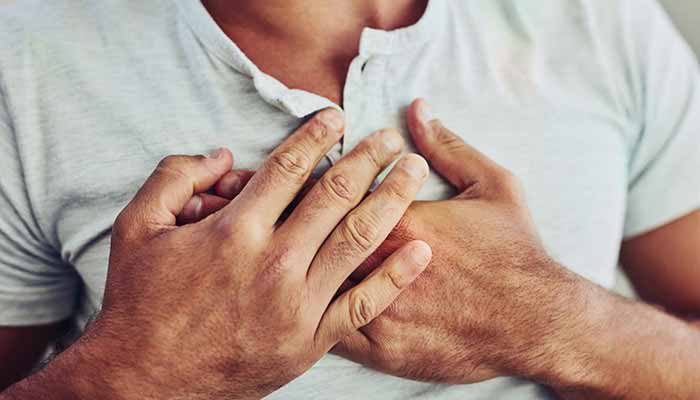
bdmetronews Desk ॥ Concerned about your cholesterol levels? While cholesterol plays a vital role in your body, too much bad cholesterol can increase your risk of heart and circulatory diseases.
Dr Riccardo Di Cuffa, GP and founder of Your Doctor, looks at the causes and consequences of high cholesterol, as well as treatments and preventative measures:
What is cholesterol?
Cholesterol is a fatty substance made in the body by the liver, but it is also found in some foods, including eggs, cheese, shellfish and fatty meats. It is carried in the blood attached to proteins, called lipoproteins.
There are two main forms of cholesterol – low density lipoprotein (LDL) and high density lipoprotein (HDL). Too much LDL (‘bad’) cholesterol is unhealthy, while HDL (‘good’) cholesterol is actually protective.
Good cholesterol plays a vital role in every cell of your body, whereas too much bad cholesterol in the blood can increase your risk of getting heart and circulatory diseases.
What are the causes of high cholesterol?
Unhealthy blood cholesterol can be genetic, meaning you can inherit high cholesterol. However, it can be caused by poor diet and lifestyle choices, including eating foods high in trans fats, smoking and not exercising.
Your age, ethnicity, medical history and even sex can also influence how likely you are to have high cholesterol.
What are the symptoms of high cholesterol?
You can have high cholesterol without any symptoms at all. However, associated symptoms of high cholesterol can include the following:
❤️ Chest pain
❤️ Angina
❤️ Heart attack
❤️ Stroke
❤️ Pain while walking – caused by blocked arteries that are unable to send blood to the legs.
What counts as high cholesterol?
The amount of cholesterol in your blood – both HDL and LDL – can be measured with a blood test.
Generally, total cholesterol levels should be 5mmol/L or less for healthy adults, or 4mmol/L or less for those at high risk.
LDL levels should be 3mmol/L or less for healthy adults, or 2mmol/L or less for those at high risk. Too low a level of healthy cholesterol (HDL) can also increase your risk of heart disease.
Getting your cholesterol level checked
Your GP may recommend that you have your blood cholesterol levels tested if you have been diagnosed with a heart condition or have had a stroke, have a family history of early cardiovascular disease or a cholesterol-related condition, are overweight, have high blood pressure, or have diabetes.
You should have a full blood test every five years from when you are 20 years old and then at least every one or two years after 45 years, depending on your risk factors. If you are already known to have high cholesterol, you should be re-tested annually if you are making lifestyle changes to reduce your cholesterol.
Treatments for high cholesterol
If you have been diagnosed with high cholesterol, you will usually be advised to make changes to your diet and increase your level of exercise.
If after a few months, your cholesterol level hasn’t dropped or it is severely high at your initial blood test, you may be advised to take cholesterol-lowering medication, such as statins.
There are plenty of things you can do to help lower your cholesterol or to help prevent high cholesterol developing, including changing your diet, cutting down on alcohol, stopping smoking and doing regular exercise.
How to manage your cholesterol levels
The best way to manage your cholesterol is through your diet, and making positive lifestyle changes will help, too. Here are the best ways to lower your cholesterol:
✔️ Follow a healthy diet
Eat healthy proteins for breakfast and the right fats (such as monounsaturated and polyunsaturated fats), found in foods such as salmon, avocado, nuts, seeds and olive oil.
✔️ Skip the sugar
Reduce the amount of sugar in your diet, and limit your intake of foods full of saturated fats and trans fats.
✔️ Sidestep processed meats
Swap processed meats for omega-3-rich fish, such as salmon, sardines, herring, mackerel and trout at least twice a week. Oily fish contains huge amounts of omega-3 fats, helping to reduce inflammation, which helps to protect against chronic diseases such as heart disease and arthritis.
✔️ Eat plenty of fruit and veg
Eat around 7-10 portions of fruit and vegetables every day. This will mean your body is absorbing the amount of vitamins and minerals needed to help your body fight against the absorption of bad cholesterol. Antioxidant-rich blueberries are thought to help lower LD cholesterol, for example.
✔️ Don’t forget fibre
Eat more soluble fibre, to reduce the absorption of cholesterol into your bloodstream. You can get fibre from foods such as wholemeal bread, bran, oats, potato skins, fruit and vegetables. It’s recommended that you eat at least 30g a day.
✔️ Manage your weight
If you’re overweight, take steps to lose weight to reduce your risk of developing heart disease. Losing excess weight is beneficial for all sorts of reasons, from improving your cholesterol profile to preventing type 2 diabetes, high blood pressure, heart attacks, strokes and cancer.
✔️ Take regular exercise
Exercise can increase your HDL (good protective cholesterol) by four to five per cent, as well as helping you lose weight if you need to.
✔️ Manage stress in your life
Stress can cause an increase in bad cholesterol indirectly, as you are more likely to eat unhealthily and have a higher body weight if you suffer from excessive stress over a long period of time. Try not to overwork or overload yourself, in order to protect yourself from developing heart disease.







